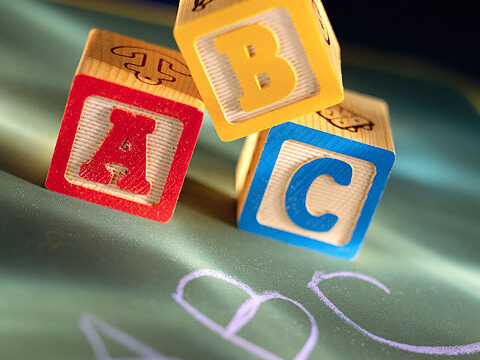The following is a convenient list of the standards included in the Illinois Early Learning Guidelines. The standards are general statements of what children should know and be expected to do by the time they reach 36 months of age. (Note: There is no standard for the newborn section of the guidelines.)

Self-Regulation: Foundation of Development
- Physiological Regulation
Children demonstrate the emerging ability to regulate their physical processes in order to meet both their internal needs and external demands in accordance with social and cultural contexts. - Emotional Regulation
Children demonstrate the emerging ability to identify and manage the expression of emotion in accordance with social and cultural contexts. - Attention Regulation
Children demonstrate the emerging ability to process stimuli, focus and sustain attention, and maintain engagement in accordance with social and cultural contexts. - Behavior Regulation
Children demonstrate the emerging ability to manage and adjust behaviors in accordance with social and cultural contexts.
Developmental Domain 1: Social & Emotional Development
- Attachment Relationships
Children form secure attachment relationships with caregivers who are emotionally available, responsive, and consistent in meeting their needs. - Emotional Expression
Children demonstrate an awareness of and the ability to identify and express emotions. - Relationship with Adults
Children demonstrate the desire and develop the ability to engage, interact, and build relationships with familiar adults. - Self-Concept
Children develop identity of self. - Relationship with Peers
Children demonstrate the desire and develop the ability to engage and interact with other children. - Empathy
Children demonstrate an emerging ability to understand someone else’s feelings and to share in the emotional experiences of others.
Developmental Domain 2: Physical Development & Health
- Gross Motor
Children demonstrate strength, coordination, and controlled use of large muscles. - Fine Motor
Children demonstrate the ability to coordinate their small muscles in order to move and control objects. - Perceptual
Children demonstrate the ability to distinguish, process, and respond to sensory stimuli in their environment. - Self-Care
Children demonstrate the desire and ability to participate in and practice self-care routines.
Developmental Domain 3: Language Development, Communication, & Literacy
- Social Communication
Children demonstrate the ability to engage with and maintain communication with others. - Receptive Communication
Children demonstrate the ability to comprehend both verbal and nonverbal communication. - Expressive Communication
Children demonstrate the ability to understand and convey thoughts through both nonverbal and verbal expression. - Early Literacy
Children demonstrate interest in and comprehension of printed materials.
Developmental Domain 4: Cognitive Development
- Concept Development
Children demonstrate the ability to connect pieces of information in understanding objects, ideas, and relationships. - Memory
Children demonstrate the ability to acquire, store, recall, and apply past experiences. - Spatial Relationships
Children demonstrate an awareness of how objects and people move and fit in space. - Symbolic Thought
Children demonstrate the understanding of concepts, experiences, and ideas through symbolic representation. - Creative Expression
Children demonstrate the ability to convey ideas and emotions through creative expression. - Logic & Reasoning
Children demonstrate the ability to use knowledge, previous experiences, and trial and error to make sense of and impact their world. - Quantity & Numbers
Children demonstrate awareness of quantity, counting, and numeric competencies. - Science Concepts & Exploration
Children demonstrate a basic awareness of and use scientific concepts. - Safety & Well-Being
Children demonstrate the emerging ability to recognize risky situations and respond accordingly.
Approaches to Learning
- Curiosity & Initiative
Children demonstrate interest and eagerness in learning about their world. - Problem Solving
Children attempt a variety of strategies to accomplish tasks, overcome obstacles, and find solutions to tasks, questions, and challenges. - Confidence & Risk-Taking
Children demonstrate a willingness to participate in new experiences and confidently engage in risktaking. - Persistence, Effort, & Attentiveness
Children demonstrate the ability to remain engaged in experiences and develop a sense of purpose and follow-through. - Creativity, Inventiveness, & Imagination
Children demonstrate the ability to use creativity, inventiveness, and imagination to increase their understanding and knowledge of the world.


 PDF
PDF